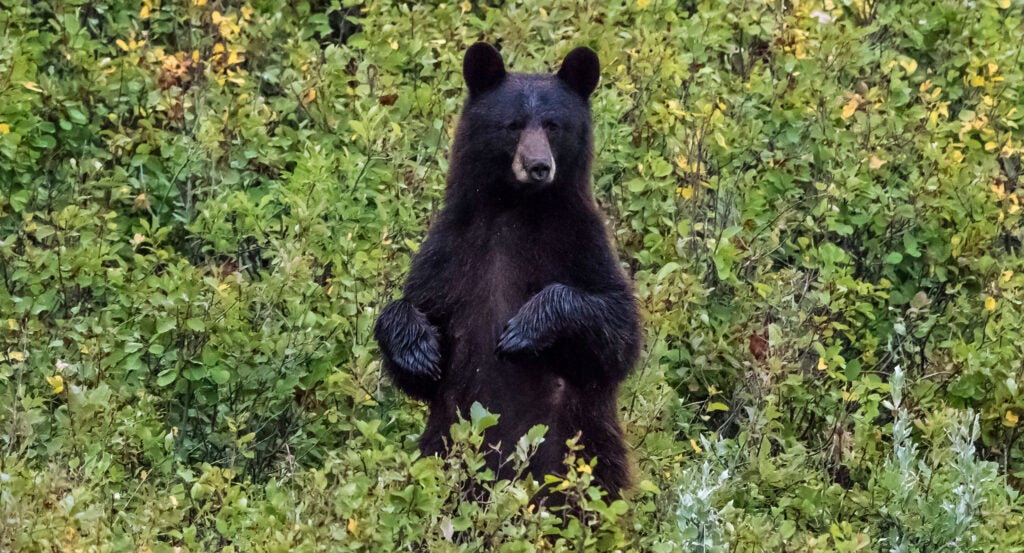No products in the cart.
Outdoor Adventure
A Relocated Bear Walked 1,000 Miles Back to Its Favorite Campsite
Outside’s long reads email newsletter features our strongest writing, most ambitious reporting, and award-winning storytelling about the outdoors.
This Tennessee black bear would walk 1,000 miles just to eat off the same picnic table.
On Wednesday, a local broadcast news channel in Knoxville reported the story of a determined black bear that had traveled across four states to return to its favorite feeding grounds, at a campsite in Great Smoky Mountains National Park. The initial episode happened in June, when officials received complaints that a female black bear was grabbing food off picnic tables, sniffing trash cans, and even stealing backpacks. Wildlife crews trapped the animal and relocated her 1,000 miles to an area of South Cherokee National Forest in Georgia. Scientists labeled the animal Bear 609 and attached a geolocating device to it.
According to the report, wildlife biologists tracked Bear 609 as she proceeded to walk across Georgia, South Carolina, and North Carolina and then into Tennessee—eventually returning to the campsite where it had been trapped.
“This was definitely one of the most bizarre movements I’ve seen so far,” Bill Stiver, one of the wildlife biologists who tracked 609, told television station WBIR 10 News. “She never slowed down. She just kept on going.”
Stiver said the bear’s journey is the longest he’s seen among relocated individuals—typically bears will walk upwards of 200 miles to return to familiar territory, he said. Relocated bears returning to a favorite human source of food is, alas, not out of the ordinary. Public land managers often struggle with bruins that have become habituated to human food sources, like trash or unattended campsites. Adult bears will sometimes return to the scene of a break-in or encounter, or continue seeking sustenance from human sources. Often, wildlife managers euthanize adult bears that have become too dependent on humans for food. Otherwise, relocated bears are often killed by cars or humans while attempting to return to their homeland. Or, they fall victim to predators, or other bears.
Bear 609’s voyage, while impressive, is yet another reminder that hikers and campers should always be careful with food and trash when recreating in bear country. Bears have powerful noses, claws and muscles, and can easily break into cars and homes in search of grub. There are far too many sad tales of bears that were put down due to human carelessness in the outdoors. Just a few months ago, a mother and her four cubs were euthanized outside Aspen, Colorado, after they were caught entering someone’s house.
There’s one more odd wrinkle to the story of Bear 609: After returning to Great Smoky Mountains National Park, the bear ventured onward to Anderson, South Carolina. While walking through the small town, the bear came into contact with family members of one of the wildlife officials at the national park where its journey began. Lisa McInnis, chief of resource management and science at Great Smoky Mountains National Park, said her relatives sent her a photo they snapped of the bear walking across their driveway. She recognized the animal.
“It’s a very, very small world,” she told WBIR.
Source link

